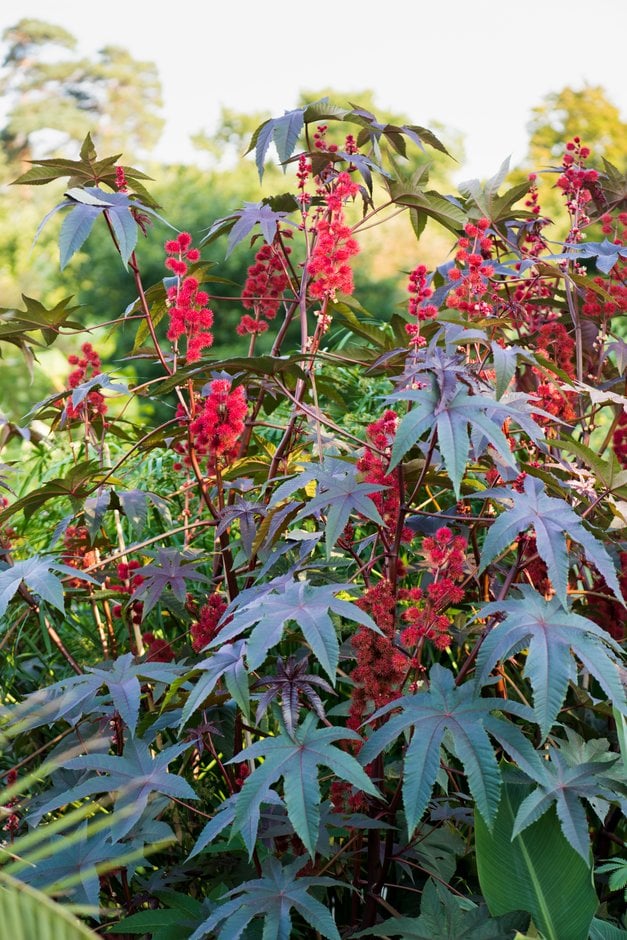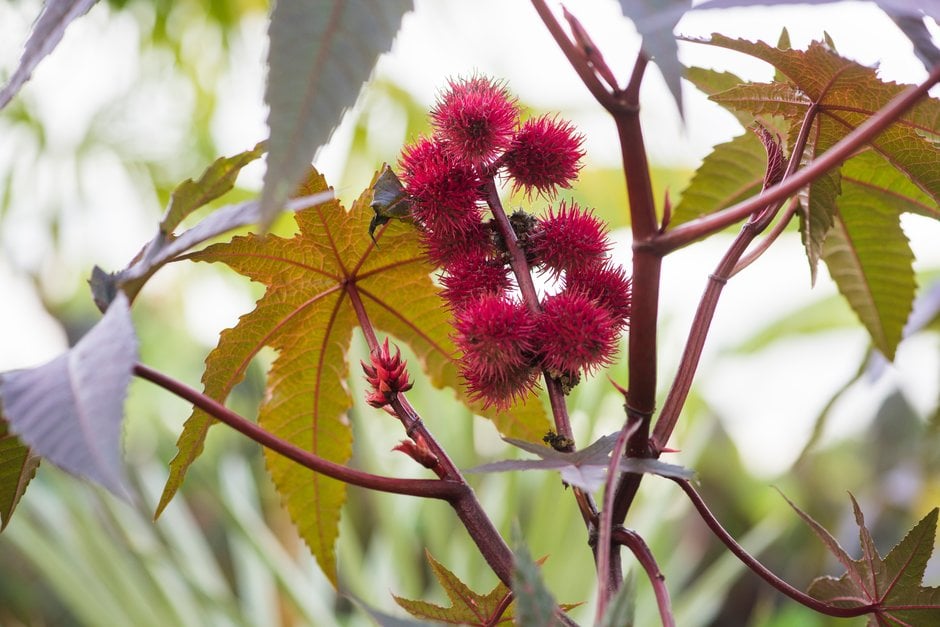Ricinus communis 'Impala'
caster oil plant 'Impala'
A tender, fast-growing, evergreen shrub usually grown as an annual in temperate climates. Large, deeply-lobed leaves up to 30cm wide emerge a dark purplish-red to bronze colour and may change to a dark green with age. Flower spikes comprise clusters of creamy-white male flowers topped by showy red female flowers and these are followed by prickly, rounded, maroon-red seed pods in autumn
Size
Ultimate height
1–1.5 metresTime to ultimate height
1 yearUltimate spread
0.5–1 metresGrowing conditions
Moisture
Moist but well–drained, Well–drainedpH
Acid, Alkaline, NeutralColour & scent
| Stem | Flower | Foliage | Fruit | |
| Spring | Red | Bronze Green Purple Red | ||
|---|---|---|---|---|
| Summer | Red | Cream Red White | Bronze Green Purple Red | |
| Autumn | Red | Bronze Green Purple Red | Red | |
| Winter | Red | Bronze Green Purple Red |
Position
- Full sun
Aspect
South–facing or West–facing
Exposure
Sheltered Hardiness
H2Botanical details
- Family
- Euphorbiaceae
- Native to GB / Ireland
- No
- Foliage
- Evergreen
- Habit
- Bushy
- Potentially harmful
- TOXIC if eaten, wear gloves and other protective equipment when handling TOXIC to pets if eaten - see the HTA guide to potentially harmful plants for further information and useful contact numbers
- Genus
Ricinus is a fast-growing evergreen shrub, often grown as an annual, with large, palmately lobed leaves and dense spikes of small flowers, followed by prickly seed capsules
- Name status
Accepted
How to grow
Cultivation
Grow in a peat-free, loam-based compost in full light. Water freely in growth and apply a balanced liquid fertiliser monthly. Plant outdoors when all danger of frost has passed. Stake plants in exposed positions. Plants grown on poorer soils tend to produce flowers at the expense of foliage
Propagation
Propagate by seed, sowing in late spring. Soak seed for 24 hours and sow singly in pots with bottom heat
Suggested planting locations and garden types
- Architectural
- City and courtyard gardens
- Patio and container plants
- Sub-tropical
- Flower borders and beds
Pruning
Pruning group 9 if needed
Pests
May be susceptible to glasshouse red spider mite
Diseases
May be susceptible to honey fungus (rarely)
Love gardening
Sign up to receive regular gardening tips, inspiration, offers and more
View our Privacy Policy
Get involved
The Royal Horticultural Society is the UK’s leading gardening charity. We aim to enrich everyone’s life through plants, and make the UK a greener and more beautiful place.

